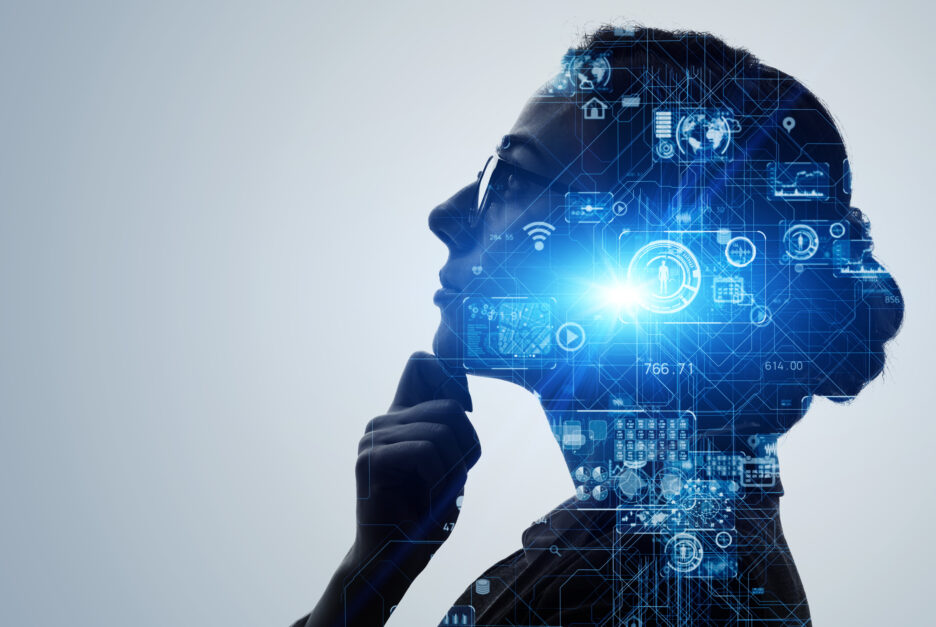How can B2B brands best harness the power of generative artificial intelligence (AI) tools to help take their influencer marketing to the next level?
At this point, it seems unlikely content that has been created with at least some AI-generated tool assistance will be shunned, making it likely that for better or worse it will soon be the rule rather than the exception — if it isn’t already.
Some organizations may put policies in place that forbid the use of generative AI, however for those that don’t there are many helpful and creative ways these tools can be harnessed to take B2B influencer marketing to the next level.
Let’s explore top ways B2B marketers can use generative AI to humanize, organize, strategize and personalize when it comes to influencer marketing.
1 — Humanize Influence With AI
When used wisely, generative AI can genuinely help build better B2B influencer marketing relationships.
In what may be a surprisingly counterintuitive twist, AI can also help marketers build and strengthen very real human relationships, and to connect with audiences and potential customers using powerful human touch-points, as we explored in “What Recent Data Shows About The Rising Importance of Human Touch-Points in B2B Marketing.”
There’s never been a time when our innate human elements have held greater importance as a key differentiator in marketing, however this doesn’t mean that AI can’t also play a role.
AI tools can help in a number of areas in B2B influencer marketing, not only allowing marketers to expand on the efforts they can accomplish alone, but to use AI for freeing up time that can be spent on real human interactions — the lifeblood of B2B influence.
Whether it’s using generative AI tools to help pre-sorting and pre-analyzing data before a B2B marketer takes that written work to levels that AI can’t, or drawing on the power of AI image, video, and audio tools to quickly build mock-ups, AI technology can play a helpful role in B2B influence.
One thing AI has brought to B2B marketing is a new focus on the power of words and the stories they tell.
“Whether you believe AI is a game-changer or not… there’s been a 180-degree, hard-turn towards this: WORDS MATTER,” Ann Handley, chief content officer at MarketingProfs, recently observed.
“Whether you believe AI is a game-changer or not... there’s been a 180-degree, hard-turn towards this: WORDS MATTER.” — Ann Handley @MarketingProfs Click To Tweet2 — Organize & Craft With AI Assistance
Taking complex and sizable amounts of B2B influencer marketing data and organizing it into the most relevant structures to begin crafting highly-focused influencer campaigns are tasks that generative AI is especially useful for.
Begin by gathering the data you wish to analyze, and then focus on winnowing down the prompts you use to query the AI tool of your choice, refining your questions to produce better output with each iteration, until you’re left with results that you can then begin to enhance with the human elements that no algorithm can synthesize.
Strong organizational skills augmented with AI tools can then help when it comes time to craft content of all sorts.
AI not only offers potential boosts to B2B influencer marketing, but also to content marketing, as we recently explored in “5 Ways ChatGPT Will Change the Future of B2B Content Marketing.”
“Smartly leveraging AI tools for content creation can drive costs down and boost efficiency, but it’s crucial to avoid generic and uninspired content,” Benjamin Shapiro, CEO at I Hear Everything, suggested recently.
“Smartly leveraging AI tools for content creation can drive costs down and boost efficiency, but it's crucial to avoid generic and uninspired content.” — Benjamin Shapiro @benjshap Click To Tweet3 — Strategize With Generative AI Insight
Analyzing a variety of influencer marketing approaches from top competitors will help highlight key differences, and allow you to develop campaign strategies that capitalize on your own organization’s strengths.
AI tools can be put to use to help compile strategic B2B influencer marketing options that truly stand out from the competition.
By using AI to strategize and help with even mundane day-to-day B2B marketing tasks, marketers stand to gain both time and new insights.
“My recommendation for anybody who is actually not familiar with artificial intelligence is to look at what you do on day-to-day basis, your roles and your responsibility, and think about how AI can apply,” Pam Didner, vice president of marketing at Relentless Pursuit, recently shared in a discussion with our own CEO Lee Odden, in “B2BMX Speaker Spotlight: Pam Didner on Artificial Intelligence Impact on B2B Marketing.”
Care must be taken to recognize that influencer efforts that rely solely on AI and automation tools can only go so far, while the most successful strategies take off from this point and utilize human-powered marketing skills to reach levels AI alone can’t achieve.
“Automation hands many of your mundane and repetitive tasks over to technology, freeing you and your team to focus on the creative elements of content generation,” Brody Dorland, co-founder of DivvyHQ, noted recently. “AI allows you to create more in less time,” Dorland added.
“Automation hands many of your mundane and repetitive tasks over to technology, freeing you and your team to focus on the creative elements of content generation. AI allows you to create more in less time.” — Brody Dorland @BrodyDorland Click To Tweet4 — Personalize & Grow Your Network of Influence With AI
AI tools can also help with potential B2B influencer identification, sorting, and outreach assistance.
AI may be destined to become a built-in part of nearly all the digital tools we use daily, from social platforms and search engines to apps to software of all sorts.
A role AI tools are increasingly playing is that of automated personal assistant, and in that capacity they can certainly enhance B2B influencer marketing efforts.
Concerns over whether AI is bringing us a general sense of positivity and making us feel that we’re heading in the right direction, or instead that we’re heading off the tracks, are genuine and will be addresses throughout 2023. It’s a topic we recently expanded on, in “The Prompt Whisperer: ChatGPT’s Rising Reach In B2B Marketing & The AI Revolution.”
“We should be excited about AI. And we should be worried,” David J.P. Fisher, global social selling lead — senior sales enablement program manager at SAS recently observed.
“Because that means we’ll look at it from as many angles as possible and hopefully avoid as many ‘unanticipated’ consequences as possible,” Fisher added.
“We should be excited about AI. And we should be worried. Because that means we’ll look at it from as many angles as possible and hopefully avoid as many 'unanticipated' consequences as possible.” — David J.P. Fisher @dfishrockstar Click To TweetUse The Right Generation AI Tools For The Job
By taking the generative AI steps we’ve outlined to humanize, organize, strategize and personalize your B2B influencer marketing, your tactical tool-belt will be ready to tackle a wide range of online marketing tasks in 2023 and beyond.
We hope this look at some of the ways that AI tools are being used in B2B influencer marketing will help in your own efforts.
Learn more about the nuances of B2B influence in our free B2B Influencer Marketing Research Report, 59 pages rich with survey insights, case studies from B2B brands, predictions from top B2B marketing experts, a list of 20 top influencer marketing practitioners from major B2B brands, and much more.
More than ever before, creating award-winning B2B marketing that elevates, gives voice to talent, and humanizes with authenticity takes considerable time and effort, which is why more brands are choosing to work with a B2B marketing agency like TopRank Marketing. Reach out to learn how we can help, as we’ve done for over 20 years for businesses ranging from LinkedIn, Dell and 3M to Adobe, Oracle, monday.com and many others. Whether you are looking for an influencer pilot program or ready to expand your current efforts, our team can help!



